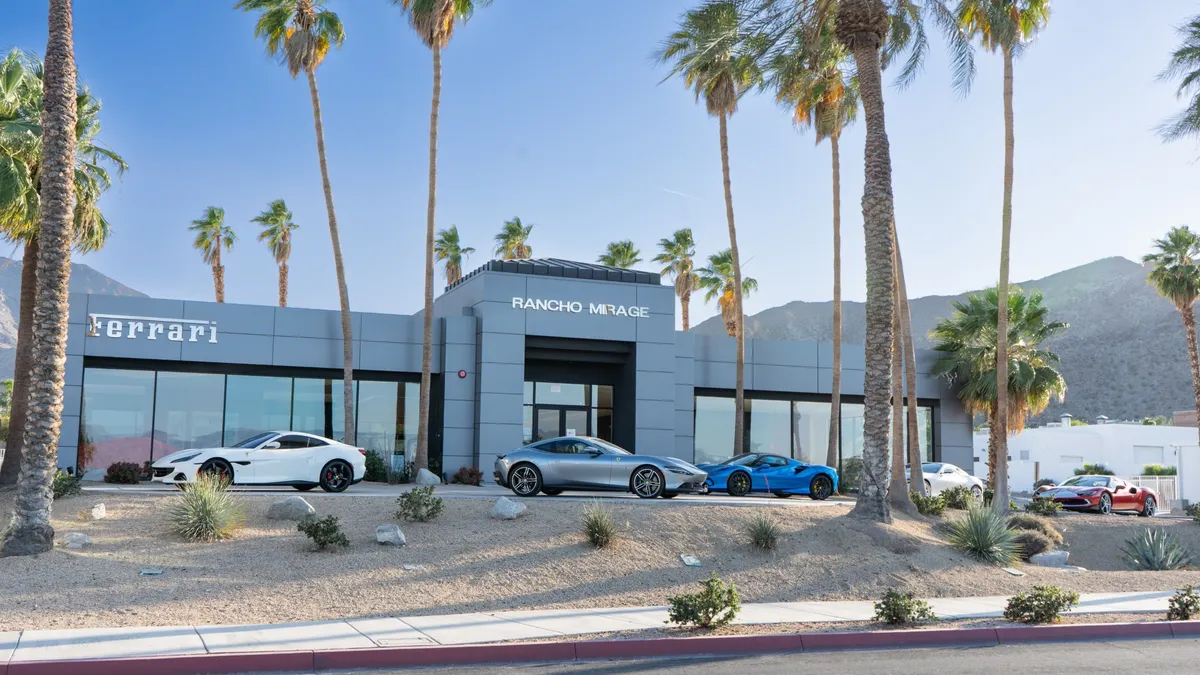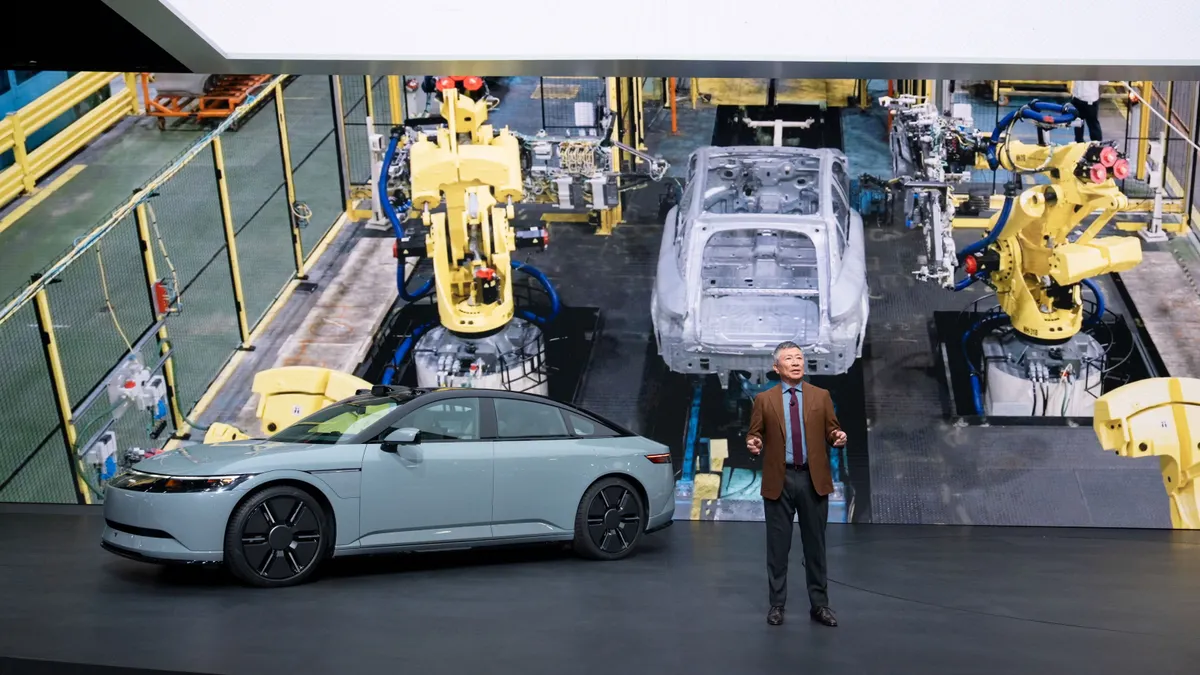Editor's note: This story is part of the WardsAuto digital archive, which may include content that was first published in print, or in different web layouts.
The amicable relationship built up over the years between the UAW and Lear, the world's largest supplier of automotive seating, is being tested by a dispute at the company’s non-union plant in Selma, AL.
The clash is filling up the dockets in two different courts in Alabama and has triggered an angry exchange over employee safety between the company and the union, which has made the Selma campaign part of a broader effort to increase its visibility among non-union employees in the Southeastern U.S.
Several foreign automakers have built assembly plants in the region since the 1980s, including Hyundai, whose assembly plant near Montgomery, AL, receives components from Lear’s Renosol subsidiary in nearby Selma.
Last week, the union hailed a temporary restraining order issued by a federal judge in Mobile, AL, after the U.S. Department of Labor filed a complaint accusing Southfield, MI-based Lear of interfering with its investigation into air quality at the Selma plant.
The ruling prevents Lear from retaliating against any current or former Renosol employee who speaks with federal investigators about conditions in the plant.
Lear denies wrongdoing and says its own tests and those conducted by the U.S. Occupational Safety and Health Admin. show air quality in the plant, which makes foam for seat cushions and headrests, is at acceptable levels. It also contends the UAW orchestrated the dispute to win support for its organizing effort at Renosol.
The Labor Dept. complaint follows Lear’s decision to fire and then sue a former employee at the Selma plant, Kimberly King, for interfering with the company’s relations with a customer, in this case Hyundai Motor Mfg. Alabama. Lear’s lawsuit was filed in a state court in Montgomery.
King, who is being defended by lawyers hired by the UAW, was fired last month after she tried to present Hyundai with a petition in which she claimed Renosol was using a toxic substance, toluene diisocyanate, in the production of seat cushions. The petition asked the Korean automaker to order Renosol to suspend the use of TDI, which has been linked to breathing difficulties including asthma.
OSHA Tests Link Chemical to Occupational Asthma Among Workers
In May 2014 OSHA, responding to complaints by Renosol workers that conditions in the plant were making them sick, launched an investigation, conducting extensive interviews and tests and concluding “some employees had occupational asthma” and other health problems related to chemical exposure at the facility.
“I’ve seen all the medication Kim needs to take to help with her breathing. I’ve seen her coughing until it hurts,” says Letasha Irby, who has worked at the Hyundai supplier in Selma since 2006. “It’s shameful and alarming that Lear would try to silence workers standing up for our safety, rather than simply accepting responsibility for providing a safe workplace.”
Except for one workers’ compensation claim rejected several years ago, no Renosol worker has presented the company with a TDI-related grievance, NBC News reported in July 2014.
Mel Stephens, Lear’s director of communications, said in a telephone interview air quality in the Renosol plant meets both federal standards and the company’s own internal safety guidelines established with the cooperation of the UAW.
While more than half of Lear’s employees worldwide are members of unions and the UAW represents about two-thirds of Lear’s production workers in the U.S., the relationship between the union and the supplier has turned hostile in Selma.
“We have good working relationships with unions who represent our employees. So obviously, we have no problem in dealing with unions,” Stephens says. “However, we do have a problem when unfounded, unsubstantiated, false statements are made that damage our reputation and our relationship with our customer.
“First, it should be understood that this entire episode is nothing more than part of an unsuccessful United Auto Workers effort to organize the Lear Selma plant,” the company says in a statement issued after the Labor Dept. filed its complaint in federal court. “However, it has become clear to the UAW that the overwhelming majority of employees do not want a union.
“Therefore, the UAW and former Lear Selma employee Kim King – an avowed supporter – continue to make statements they know to be false about the safety of the Lear plant in a desperate attempt to save their failed union organizing effort.”
Despite Stephens’ characterization of the UAW organizing effort at Renosol as “unsuccessful” and “failed,” the Selma plant’s 90 full-time employees have not voted on whether to join the union.
NLRB Investigation Delays Union Vote
Workers were to vote June 19 and 20 on whether to join the UAW, but the election has been delayed while the National Labor Relations Board investigates an unfair labor practices complaint filed by the union. The complaint accuses Lear of coercive actions such as surveillance, threats, interrogation and improper discipline.
The complaint does not cite specific allegations against the company.
“Employee safety is our primary concern at all of our facilities and Lear has fully cooperated with efforts to ensure employee safety at our Selma facility,” the company statement says.
UAW Vice President Cindy Estrada highlighted the confrontation in Selma and King’s firing in a blistering attack on Lear during the union’s recent bargaining convention in Detroit.
Estrada, who is responsible for bargaining with parts suppliers such as Lear that have unionized plants, noted many workers in parts plants, including a large percentage of the non-unionized Renosol workers in Selma, are paid only $8 or $9 per hour.
“It’s not just McDonald’s and Wal-Mart that are paying substandard wages. It’s also happening in the manufacturing sector,” Estrada said. “You can’t rebuild the middle class if people are making $8 and $9 per hour,” she said, noting King, a 9-year employee at Renosol, was being paid $12.25 an hour while Lear’s top two executives made more than $22 million last year.
“The workers at the Selma plant need a union.”
Lear builds seats for several automakers including General Motors, Ford, FCA and Nissan as well as Hyundai.
“The disparity in power, control, resources and the ability to inflict harm is clear in the relationship between Ms. King and defendants,” the Labor Dept. said in its complaint filed in federal court.


















